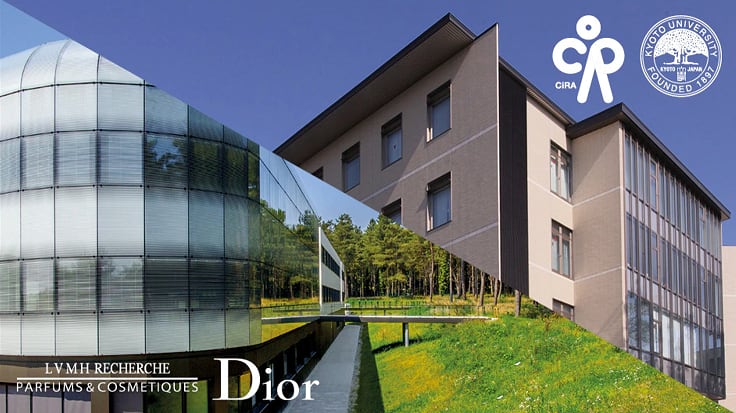The aim of the joint project is to explore how oxidative metabolism affects skin keratinocyte self-renewal or differentiation capabilities.
“The effects of age on mitochondrial status, skin regeneration and differentiation will be investigated with the hope of contributing to major therapeutic discoveries in the skin and cutaneous rejuvenation,” said CiRA in a press statement.
Under the direction of Nobel Prize laureate Shinya Yamanaka, CiRA is a leading centre for induced pluripotent stem cell research.
According to CiRA, iPS cells are cells generated by introducing a small number of factors into body cells such as skin cells and blood cells.
What makes iPS cells unique is that they can be converted into any type of cell in the body and proliferate indefinitely in culture
Dior aims to leverage on the centre's stem cell expertise to develop ways of regenerating skin cells and maintain youthful skin.
Delving into the cellular cause of ageing
CiRA’s Wolzen Laboratory, led by Associate Professor Knut Wolzen will provide Dior’s research team access to induced pluripotent stem (iPS) cells from healthy elderly donors and provide its expertise in genome editing.
This will allow them to analyse the factors that are linked to the signs of ageing, such as wrinkles, by comparing the state of skin cells generated from the iPS cells of young and elderly donors.
This project marks the first time the Japanese team has worked with a French luxury cosmetics company.
CiRA’s previous research on iPS cells has led to new treatments for intractable diseases such as Parkinson's disease and amyotrophic lateral sclerosis (ALS).
Dior said that it hoped the long-term exchange between Dior Science and CiRA would lead to major therapeutic discoveries in the skin and cutaneous rejuvenation.
Dior Science, which is under the research and innovation division of the LVMH group, has 20 years of experience in stem cell research.
According to Dior Science, its own research has resulted in 17 discoveries in the cutaneous domain, around 55 publications as well as several academic partnerships.
The latest findings of their research on stem cells in the field of skin care have garnered “great interest” from CiRa.
Moving forward, the teams plan to investigate the substances necessary for regeneration and how skin cells change after exposure to everyday stress such as ultraviolet radiation and heat.


